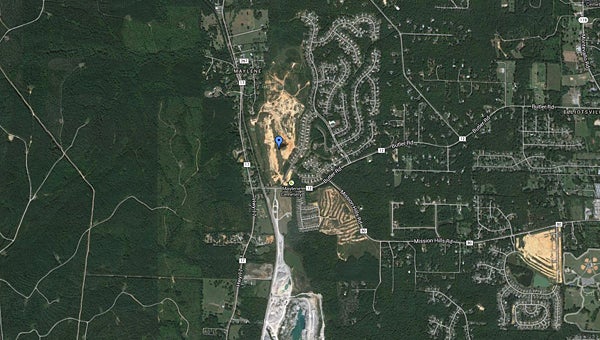Alabaster seeks to dismiss lawsuit against city
Published 3:41 pm Wednesday, April 16, 2014

The South Grand View Development company has sued the city of Alabaster, claiming a 2011 rezoning cost the company “millions.” (Contributed)
By NEAL WAGNER / Managing Editor
Attorneys for the city of Alabaster have asked a federal court to drop a lawsuit brought against the city by a developer claiming a 2011 rezoning action cost the developer “millions.”
In court documents filed in January and February, Alabaster’s attorney in the case, Richard Whitaker, requested U.S. District Court Judge Madeline Hughes Haikala dismiss a lawsuit brought against the city in December 2013 by the South Grande View Development Company.
In the lawsuit, South Grande View claimed the Alabaster City Council caused the company “potentially millions of dollars in lost profits” when it adopted a new zoning ordinance during its Dec. 5, 2011 meeting.
According to a complaint filed in court by South Grande View Development, the company “invested millions of dollars developing” property off Butler Road, including the Grande View Estates subdivision.
According to Alabaster City Council minutes, the council voted unanimously during its Dec. 5, 2011, meeting to rezone the undeveloped 130 acres from R-7 town home and R-4 garden home districts to R-2 single-family residential district.
In its complaint, South Grande View Development claimed the R-2 zoning allowed less dense development than the company had planned for on the property, and claimed several undeveloped lots on the property were under contract with a builder when the city voted to rezone the property.
After the rezoning, the company claimed banks holding mortgages on the company’s properties “declared themselves to be insecure and proceeded with foreclosure” on multiple pieces of the company’s properties.
The company claimed it did not learn of the city’s decision to rezone the 130 acres until “after the time for appeal to the Circuit Court for Shelby County had expired.”
In court documents supporting the city’s request to dismiss the charges, Whitaker claimed South Grande View had a registered agent and its attorney at the Dec. 5, 2011 council meeting.
“South Grande View was unquestionably on notice of the adoption of the subject ordinances but failed to act on that notice,” read the court document. “South Grande View cannot now seek redress from the court as a result of its own failure to act.”
South Grande View’s attorney, Jim Pino, filed a response brief in February requesting Haikala deny the city’s motion to dismiss the lawsuit, claiming the development company “was denied any opportunity to seek judicial review of the ordinance by Alabaster’s failure to provide notice of the formal adoption of the rule until the time for appeal had passed.”
As of April 16, Haikala had not yet ruled on the city’s motion to dismiss the lawsuit. If the case goes to trial, it likely will not be until February 2015, according to court scheduling documents.









